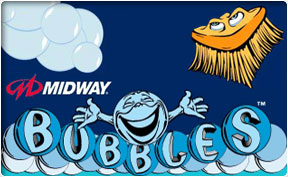 Where do Bubbles Come From?
Where do Bubbles Come From?Doing some thinking about various predictions I made in older posts along with predictions made by other bloggers, and it seems as if they are generally correct. Which got me to thinking if that isn't how bubbles begin - with widely predictable environments.
General macroeconomic developments are not that difficult to wrap your mind around and anticipate. Inflation isn't going to go from 2.7% to 0%, or to 5% overnight. It seems like bubbles really pick up steam when a majority of market participants correctly predict market events, and are not the result of wild "speculators" and other fools who placed incorrect bets.
The creation of bubbles seem (at least to me) to be the result of individuals following a very rational, typical line of reasoning. To the individual investor, you make a prediction about how the market is going to unfold over the next couple days, weeks, months, and even years. You then base your investment decisions based upon those predictions. Data is constantly coming in, and as data seems to corroborate your position, do you stick to your original allocation? Most likely not - you would act AGAIN based upon the same prediction. Even though your prediction is already priced into the market. Maybe you wouldn't act immediately, but as you see it is becoming a consistently winning sector or strategy, the impatience and urge to act again builds.
This is especially true if your prediction is initially luke-warm, but gains steam over the long run. You tend to pat yourself on the back by re-investing based upon your predictions. This process repeats itself numerous times, and across the market among many investors - as events unfold according to widely predicted events, investors are increasingly pursuing the same strategy, and upping their positions as data shows that they were right. And as the market is revealing its verdict that the prediction was correct, the predictions become more optimistic, even though nothing has fundamentally changed save other investors agreeing with your strategy.
The whole point of this is that the market has correctly been anticipating a slowdown for some time now, and as that scenario is slowly unfolding, several "congratulations" rallies have occurred. The market has congratulated itself for correctly (up to this point) predicting macroeconomic conditions, but can't seem to remember what the initial investment rationale was behind the positioning. Large Caps are the place to be in this slowing environment (who didn't see that one coming, the return of large-caps has been discussed for years now), but in a slowing environment should they be leading the market to all-time highs on a routine basis?
I think that impatience gets the best of investors in the formation of bubbles, and there is certainly plenty of that going around in this market. That is not to say that the current investment environment is frothy, but it seems to be inching closer.
